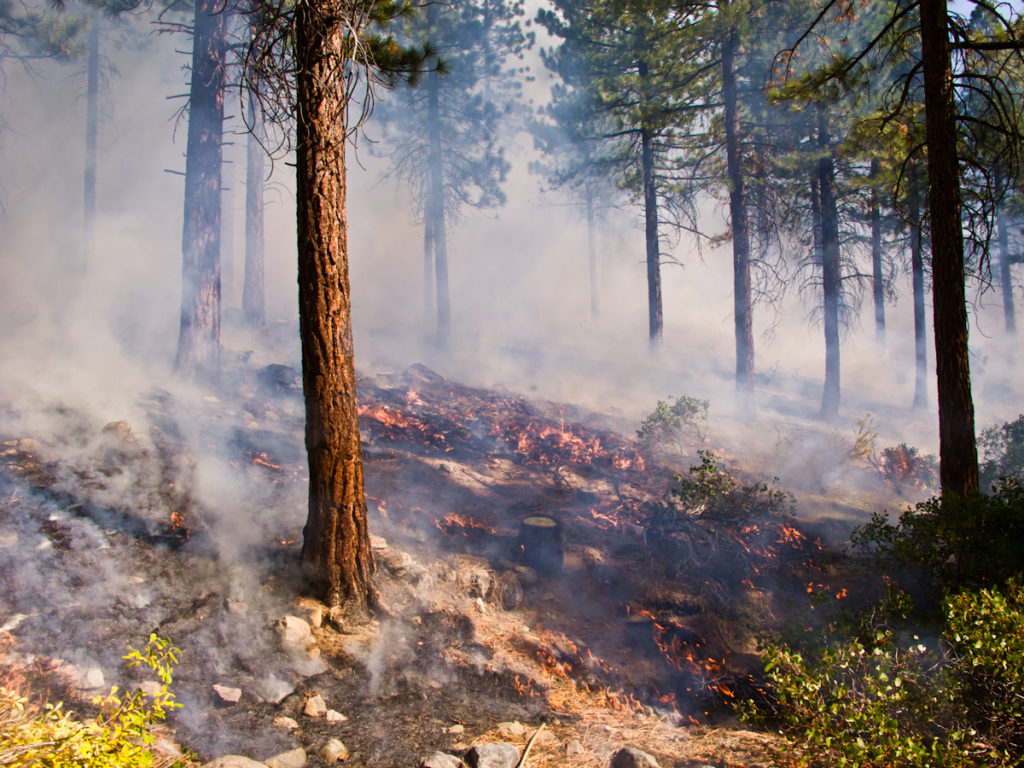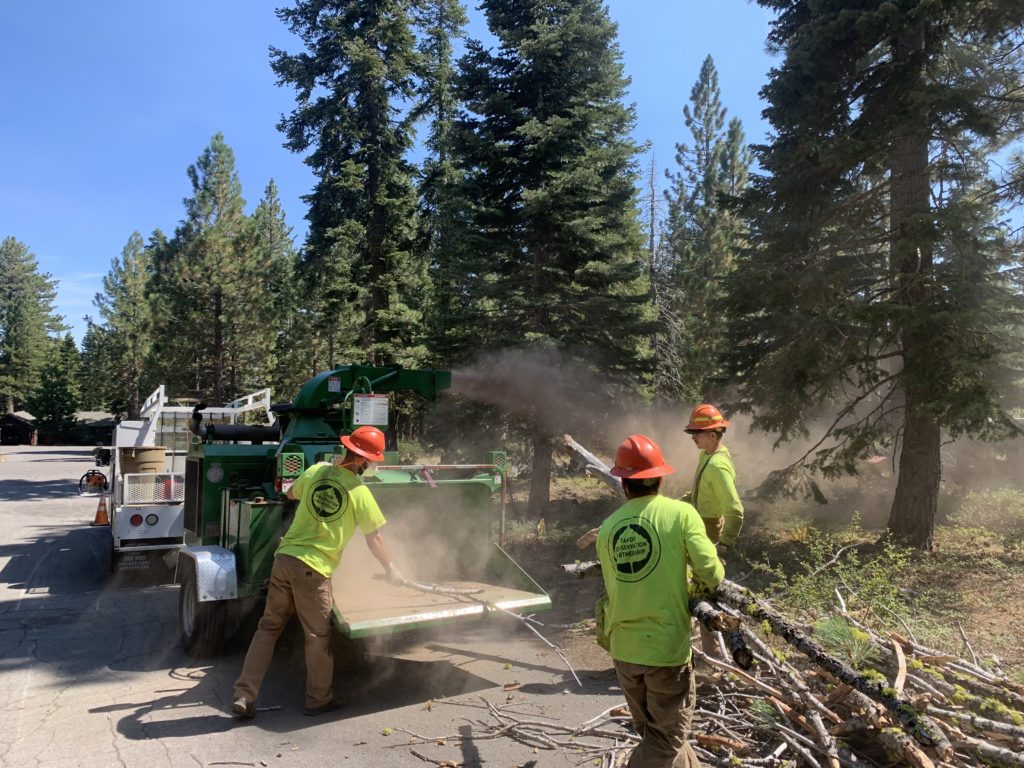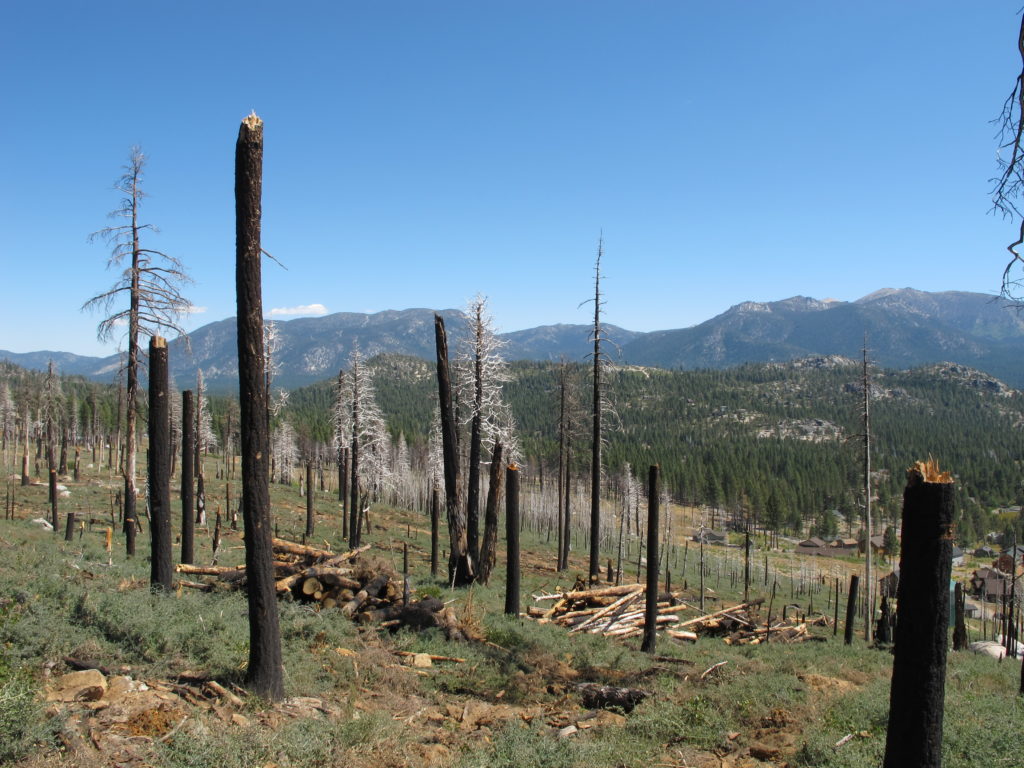The goal of the Environmental Services Program at Tahoe RCD is to provide services to local public and private agencies and businesses that advance our mission of promoting the conservation and stewardship of the Lake Tahoe region’s natural resources. This program gives us the flexibility to do small or large projects for our partners that may not fit under our existing program umbrellas. We are an ideal partner to connect private and public stakeholders to collaboratively conserve our natural resources.
We manage millions of dollars in programs and projects annually that support all aspects of conservation including, but not limited to: water quality improvement, wildlife habitat protection and restoration, invasive species prevention and control, fire prevention and defensible space maintenance, sustainable recreation, water conservation, and land management and restoration. The environmental services we offer include wildlife, geomorphic, habitat, and vegetation surveys; stormwater, stream, and lake monitoring; prescribed fire effects monitoring; tree risk assessment, disease identification, marking for fuels reduction projects, and more.
Tahoe RCD conducts wildlife, vegetation, and habitat surveys on lands associated with fuel reduction projects, and forestry, wetland, and riparian restoration projects. Prior to implementation of these projects, regulations require surveys to identify sensitive species that may be harmed by these activities. Surveys are conducted for sensitive, threatened, and endangered plant and animal species; suitable habitat for mating, feeding, and nesting; and presence or absence of wildlife. If sensitive species are identified, actions are taken to mitigate habitat disturbance.
Tahoe RCD also conducts geomorphic surveys before and after implementation of restoration projects. Pre and post project surveys of streambed elevation profile, migration and sinuosity; quantification of erosion and deposition; and delineations of stream environment zones can provide valuable information on restoration project effectiveness, long-term stability, and habitat improvement.
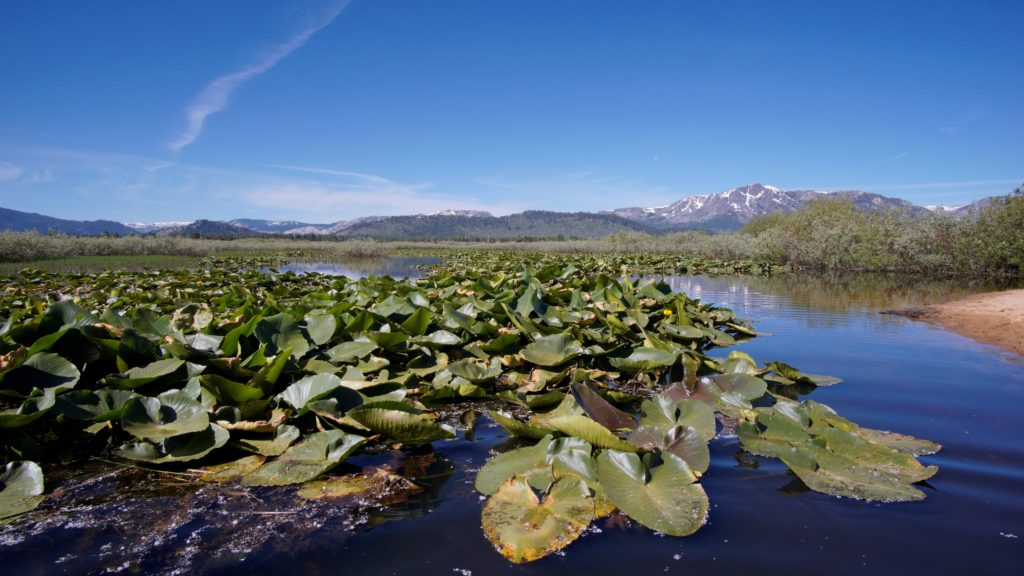
Tahoe RCD biologists conducted surveys for avian and bat species during summer 2020 at the California Tahoe Conservancy Upper Truckee Marsh located in South Lake Tahoe, California. Surveys were conducted to monitor the effects of restoration on species richness and abundance. Restoration of the Upper Truckee Marsh should not only improve habitat for many wildlife species but also restore resiliency and ecological function of this wetlands complex.
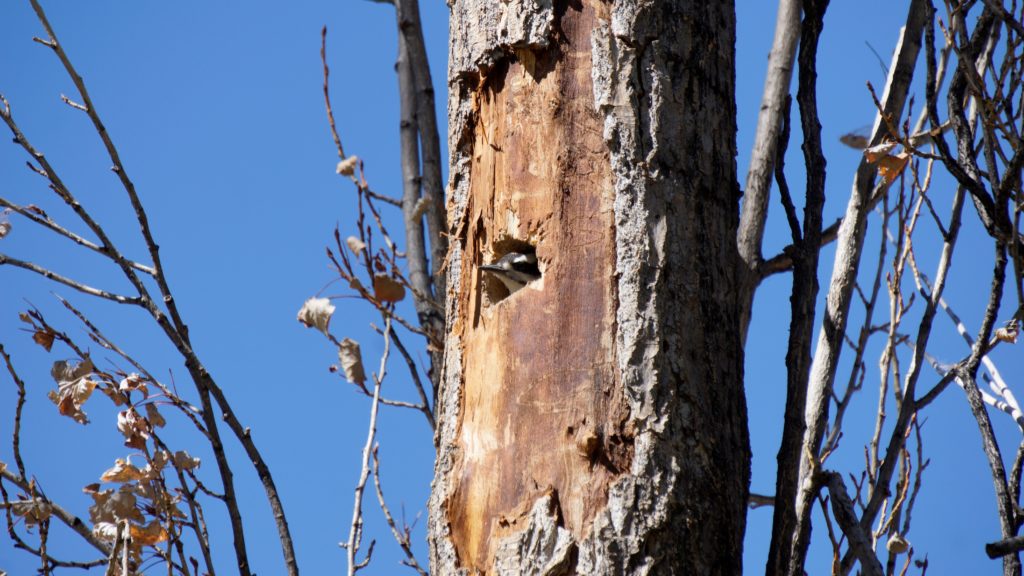
Tahoe RCD biologists conducted surveys for avian and bat species during spring and summer 2020 at the California Tahoe Conservancy Dollar property located in Tahoe City, California. Surveys targeting California spotted owl and northern goshawk were conducted to determine nesting status prior to fuels reduction treatments scheduled for summer 2021. Baseline data from bat acoustic surveys conducted prior to fuels treatments is critical for protecting the Tahoe Basin’s rich bat biodiversity and the important role they play in the ecosystem.
Tahoe RCD has the expertise to conduct water quality monitoring of urban stormwater runoff, streams, and lakes. Tahoe RCD manages the Regional Stormwater Monitoring Program and can select optimal sites in both urban and streamzone environments; design and build monitoring stations; provide remote access capabilities to equipment for programming and data collection; and manage, analyze, and report findings. Tahoe RCD also conducts monitoring in the nearshore zone of Lake Tahoe for harmful bacteria and chemicals that could affect human health. Tahoe RCD can also provide hydrologic modeling including Pollutant Load Reduction Model (PLRM) and Stormwater Management Model (SWMM) and implementation of various Rapid Assessment Methodologies (RAMs) in compliance with Lake Tahoe Environmental Improvement Program (EIP) and Lake Tahoe Total Maximum Daily Load (TMDL) requirements.
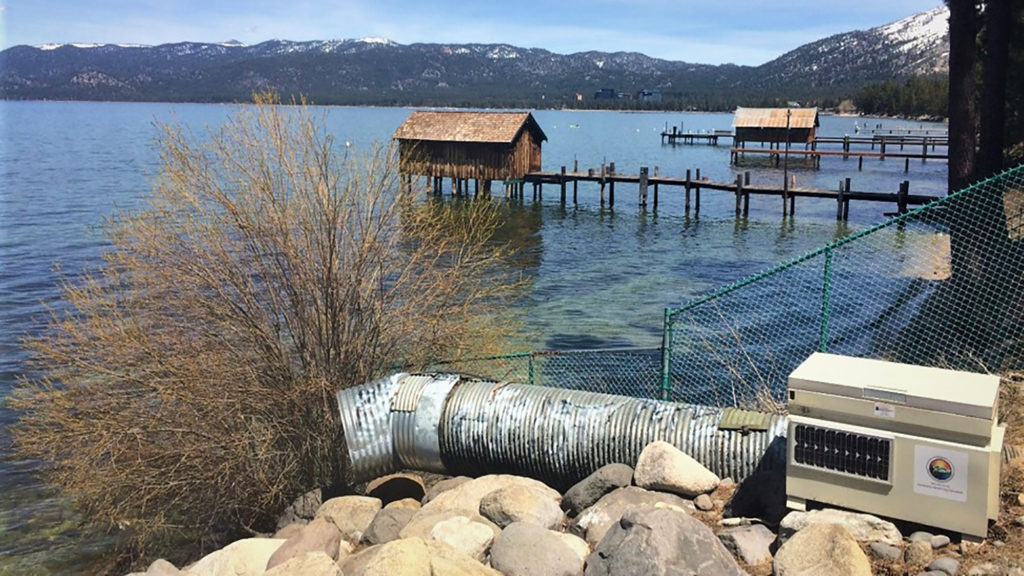
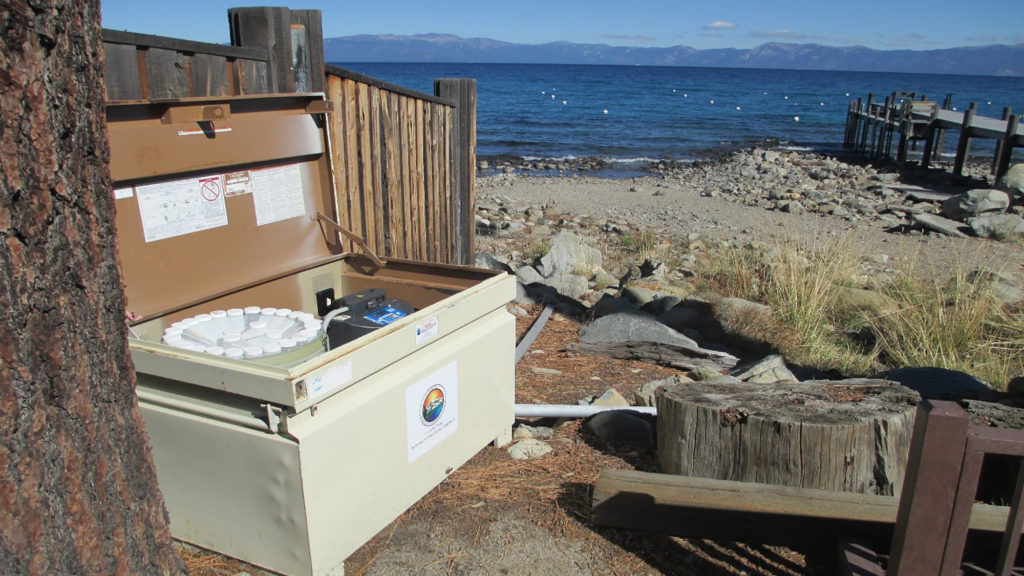
Tahoe RCD can conduct tree risk assessment and disease identification, as well a mark trees for fuels reduction projects. Tree health and habitat monitoring can be conducted before and after prescribed burns to assess the effects of fuel reduction. Evaluations for defensible space and ignition zones can be conducted for residential and commercial properties. If necessary, home hardening recommendations will be given.
